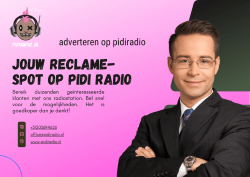Listeners:
Top listeners:
-
play_arrow
Pidi Radio – Listen to Dance
-
play_arrow
Pidi Radio – Listen to Queer Classics
English translation below
LGBTQ+ Asielzoekers in Nederland: Een Weg naar Veiligheid en Acceptatie
Voor LGBTQ+ mensen die in het buitenland niet veilig kunnen leven vanwege discriminatie, vervolging en geweld, kan het aanvragen van asiel in Nederland een weg naar veiligheid en acceptatie bieden. Het asieltraject is echter vaak complex en uitdagend.
Waarom Zoeken LGBTQ+ Mensen Asiel?
In veel delen van de wereld worden LGBTQ+ personen gediscrimineerd, vervolgd en blootgesteld aan geweld op basis van hun seksuele geaardheid of genderidentiteit. Dit kan leiden tot ernstige fysieke en psychologische schade. Om te ontsnappen aan deze gevaarlijke situaties, zoeken velen van hen asiel in landen die bekend staan om hun inzet voor mensenrechten, zoals Nederland.

Het Asieltraject in Nederland
Het asieltraject in Nederland omvat verschillende stappen:
- Aanvraag indienen: De eerste stap is het indienen van een asielverzoek bij de Immigratie- en Naturalisatiedienst (IND) in Nederland. Hierbij moet de aanvrager gedetailleerde informatie verstrekken over hun achtergrond en de redenen voor hun asielverzoek, inclusief bewijs van vervolging of dreiging.
- Interviews en onderzoek: De IND zal de aanvrager uitnodigen voor interviews om hun zaak te beoordelen. Er wordt onderzoek gedaan naar de geloofwaardigheid van het asielverzoek.
- Besluitvorming: Na het onderzoek zal de IND een besluit nemen over het asielverzoek. Als het wordt afgewezen, kan de aanvrager beroep aantekenen.
- Opvang en Integratie: Als het asielverzoek wordt goedgekeurd, krijgt de aanvrager toegang tot opvang en wordt begonnen met het integratieproces in Nederland.
Uitdagingen voor LGBTQ+ Asielzoekers
LGBTQ+ asielzoekers kunnen te maken krijgen met specifieke uitdagingen:
- Bewijsvoering: Het kan moeilijk zijn om bewijs te leveren van vervolging vanwege seksuele geaardheid of genderidentiteit, omdat dit vaak verborgen en persoonlijk is.
- Stigmatisering: Sommige asielzoekers ervaren vooroordelen en onbegrip, zelfs binnen de asielzoekersgemeenschap.
- Mentale Gezondheid: Het traject kan stressvol en traumatisch zijn, wat de mentale gezondheid van asielzoekers kan beïnvloeden.
Hulp voor LGBTQ+ Asielzoekers
Gelukkig zijn er organisaties en gemeenschappen in Nederland die zich inzetten voor de ondersteuning van LGBTQ+ asielzoekers. Deze organisaties bieden juridische bijstand, psychologische ondersteuning en sociale netwerken om integratie te vergemakkelijken.
Voor LGBTQ+ mensen die in het buitenland niet veilig zijn, is Nederland een potentiële toevluchtsoord. Het asieltraject kan moeilijk zijn, maar het biedt hoop op een leven zonder discriminatie en angst. Het is belangrijk dat deze mensen worden verwelkomd en ondersteund terwijl ze streven naar een veilige en vreedzame toekomst.
LGBTQ+ Asylum Seekers in the Netherlands: A Path to Safety and Acceptance
For LGBTQ+ individuals who cannot safely live in their home countries due to discrimination, persecution, and violence based on their sexual orientation or gender identity, applying for asylum in the Netherlands can offer a path to safety and acceptance. However, the asylum process is often complex and challenging.
Why LGBTQ+ People Seek Asylum?
In many parts of the world, LGBTQ+ individuals face discrimination, persecution, and exposure to violence because of their sexual orientation or gender identity. This can lead to severe physical and psychological harm. To escape these perilous situations, many of them seek asylum in countries known for their commitment to human rights, such as the Netherlands.
The Asylum Process in the Netherlands
The asylum process in the Netherlands involves several steps:
- Submitting an Application: The first step is submitting an asylum request to the Immigration and Naturalization Service (IND) in the Netherlands. During this, the applicant must provide detailed information about their background and the reasons for their asylum request, including evidence of persecution or threat.
- Interviews and Investigation: The IND will invite the applicant for interviews to assess their case. An investigation will be conducted to determine the credibility of the asylum request.
- Decision-Making: After the investigation, the IND will make a decision on the asylum request. If it is rejected, the applicant can appeal.
- Housing and Integration: If the asylum request is approved, the applicant gains access to accommodation and the process of integration into Dutch society begins.
Challenges for LGBTQ+ Asylum Seekers
LGBTQ+ asylum seekers may face specific challenges:
- Evidence Gathering: Providing evidence of persecution based on sexual orientation or gender identity can be challenging, as this is often hidden and personal.
- Stigmatization: Some asylum seekers encounter biases and misunderstandings, even within the asylum-seeker community.
- Mental Health: The asylum process can be stressful and traumatic, impacting the mental health of asylum seekers.
Support for LGBTQ+ Asylum Seekers
Fortunately, there are organizations and communities in the Netherlands dedicated to supporting LGBTQ+ asylum seekers. These organizations offer legal assistance, psychological support, and social networks to facilitate integration.
For LGBTQ+ individuals who are not safe in their home countries, the Netherlands represents a potential refuge. The asylum process may be difficult, but it offers hope for a life free from discrimination and fear. It is essential that these individuals are welcomed and supported as they strive for a safe and peaceful future.
WHO WE ARE
License information
Pidi radio is a fully licensed radio station. Below the information of our licensenumber is:
SW22n.0002481 for Buma & Sena.
For more information click this link.
COPYRIGHT: Pidi Radio 2024








